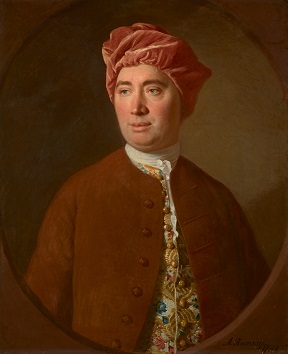Liberty Matters
Common Sense Methodized
 I am happy to acknowledge Dan's points – they are well taken.
I am happy to acknowledge Dan's points – they are well taken.What thrills me is his SPIRAL representation (not theory) of the interrelation between "theory" and practice. I see the widening of the spiral as encompassing our growing experience (funded wisdom of the past) applied to novel circumstances. This might also be useful in an account of markets.
What I want to focus on is the expression "theory." This needs to be elucidated, and I am happy to expand on this. There are at least three types of "theory": elimination, exploration, and explication. In real physical science, eliminative "theory" takes the form of eliminating one theory in favor of another. (Copernicus eliminates Ptolemy.)
Exploration saves the surface phenomena (seeing colors) by constructing an elaborate account of underlying structure (light rays, nervous system, etc.). Molecules are colorless, but we can explain why we see the world in technicolor. The hidden structure can be empirically confirmed.
Explication is a mode of understanding social practices. It presupposes that all social practices function with implicit norms and that to explicate a practice is to make explicit the inherent norms. In explication we try to clarify that which is routinely taken for granted, namely, our ordinary understanding of our practices, in the hope of extracting from our previous practice a set of norms that can be used reflectively to guide future practice. Explication attempts to specify the sense we have of ourselves when we act and to clarify that which serves to guide us. We do not change our ordinary understanding but rather come to know it in a new and better way. Explication is a way of arriving at a kind of practical knowledge that takes human agency as primary. It seeks to mediate practice from within practice itself.
Explication is a form of practical knowledge and presupposes that practical knowledge is more fundamental than theoretical knowledge. Explication presupposes that efficient practice precedes the theory of it. All reflection is ultimately reflection on primordial practices that existed prior to our theorizing about them. Language is a good example. Natural languages were and are spoken prior to the explication of their grammar.
What transcendent philosophy (and bad social science) try to do is offer a hidden structural (exploratory) account of social practice (Rawls). Unfortunately, there is potentially an infinite number of such accounts (great for clever dissertations and publications) with no way to choose among them – they are masks for a private political agenda. In any case, in order to engage in exploration we must presuppose agreement on what is being explained. Exploration always presupposes explication and can never go beyond it (Wittgenstein, Hayek, and Oakeshott).
It would be a mistake to try to understand this process of norm articulation from either a natural scientific or social scientific perspective. The objection to viewing this process as, say, simply organic is that it fails to do justice to the historical, or temporal, dimension. We might be mistakenly tempted to think in terms of adaptation to the environment, but such adaptation will be restricted to individuals or, when viewed socially, mistakenly construed as a form of progressive social development. Real historical development is much more precarious and in no sense unilinear.
Explication is an intrinsically historical activity precisely because a practice is an ongoing historical event. To explicate is to explain what we have been doing, specifically, what we have been trying to do or aiming to do. Explication, then, sees the present as a development out of the past; explication does not see the present as an imperfect vision of the future and the past as an imperfect vision of the present. Another way of putting this is to say that explication sees the evolution of practices, not the progress of practices; or, alternatively, it is a progress "from" not a progress "to." To believe in "progress to" is to be concerned with the alleged existence of how the world "really" is independent of us, whereas to believe in progress from" is to be concerned with how the world is relative to ourselves. How the world is relative to us cannot be understood independent of our interaction with it and how along the way we have acquired our way of thinking and acting.
I suggest that Hume was an early articulator of explication and that we should use "explication" instead of "theory" in the spiral. It is common sense methodized and corrected.
Copyright and Fair Use Statement
“Liberty Matters” is the copyright of Liberty Fund, Inc. This material is put on line to further the educational goals of Liberty Fund, Inc. These essays and responses may be quoted and otherwise used under “fair use” provisions for educational and academic purposes. To reprint these essays in course booklets requires the prior permission of Liberty Fund, Inc. Please contact oll@libertyfund.org if you have any questions.